Over 281 million people – nearly 4 percent of the world’s population – don’t live in the country where they were born. International Migrants Day is an occasion to shed light on the challenges that confront people on the move. While the number of migrants throughout the world keeps on growing – due to factors like poverty, insecurity, or the effects of climate change – the implementation of a human rights approach to human mobility is still lagging.
Hostile immigration policies and practices such as the militarization of borders and criminalization of migrants increase their vulnerability to human rights violations. This is notably the case in the Americas, where these practices force people to use increasingly dangerous routes, subjecting them to extortion, sexual violence, and killings by cartels and smugglers.
In this context, Franciscans are at the frontlines of helping migrants. Created in 2018, the Franciscan Network for Migrants (FNM) aims to “form a corridor for migrant humanitarian support throughout the Americas.” The members of the Network work directly on the ground by providing essential services such as temporary housing and food, but they also seek to uphold migrants’ rights at the United Nations through Franciscans International.
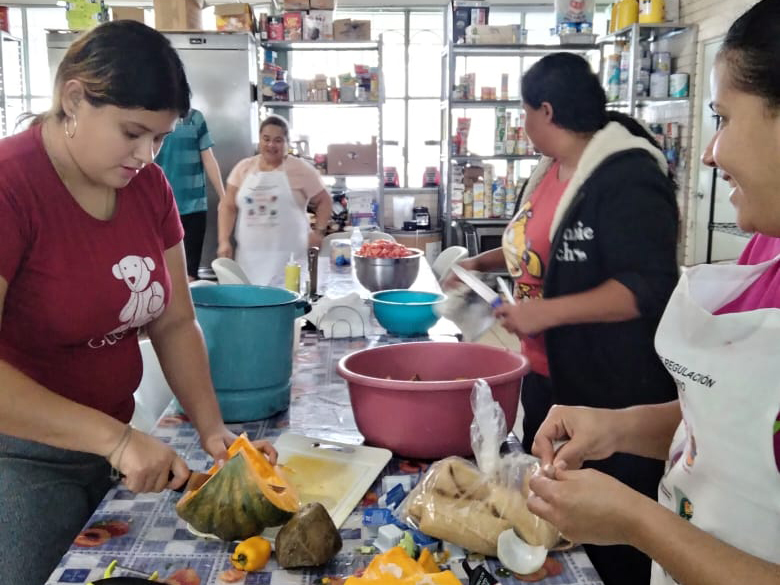

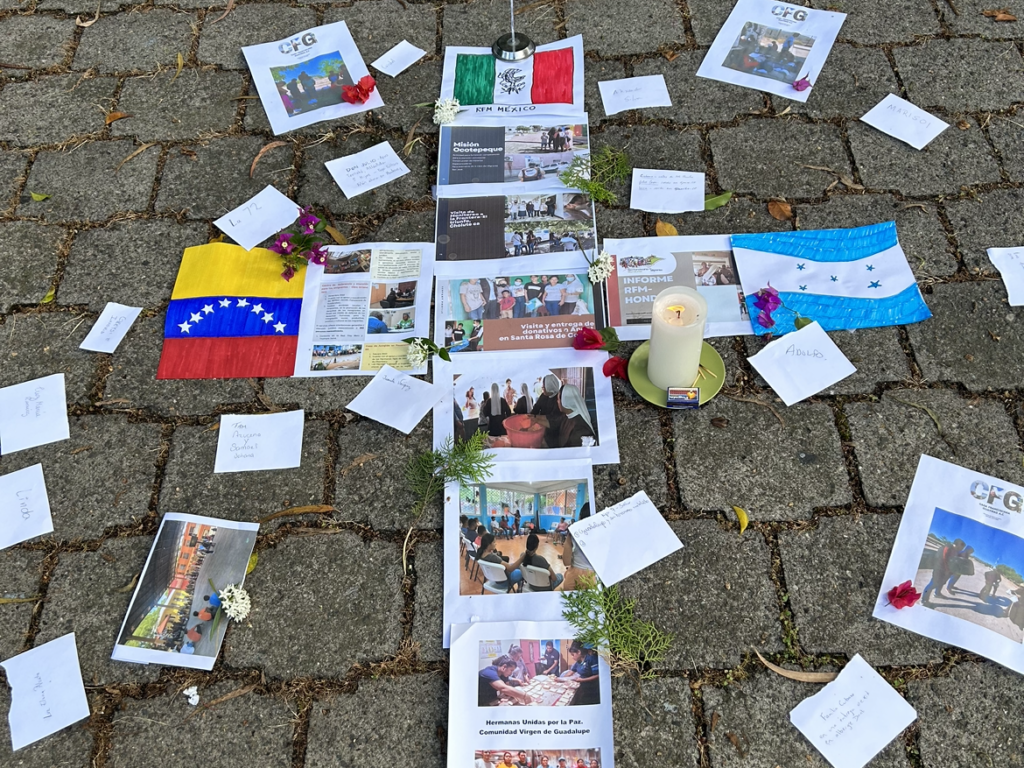
The establishment of shelters near borders crossing points also plays an essential role in preserving the safety and dignity of people on the move in Colombia, Central America, Mexico, and the United States.
Indeed, many people are in dire situations when they arrive at a shelter. Some have lost everything, they may have witnessed or experienced extreme violence, or sometimes have been separated from family. Alejandra Conde, from the Franciscan La 72 explains: “We are in a context in the south of Mexico where there are many, many issues of violations by authorities and also organized crime, common crime, kidnappings, assaults, robberies, and sexual violence.”
“We are defenders of the rights of migrants.”
Located in Tenosique, the La 72 shelter welcomes migrants and gives special attention to victims of crime by providing psychological support as well as informing them of their rights. “We also take into account intersectionality and pay specific attention to the most vulnerable groups such as unaccompanied minors, children, women, and members of the LGBTQ+ community,” says Alejandra. To do so, they use various strategies, such as creating different spaces where people feel safe: for instance, there are some parts of the shelter where only women are allowed.
Complimenting the psychological support and counseling, most shelters offer medical services, filling the gap of the lack of access to healthcare for migrants. They also provide core relief items such as food, toiletries kits, and clothing.
For Sister Isabel Turcios (FMI), director of the migrants’ shelter Frontera Digna in Coahuila, their presence is essential: “Given the situations of vulnerability that migrants live in, the work that is done from this shelter is of vital importance because we can listen, welcome, protect, and provide legal advice in situations that require it. We are defenders of the rights of migrants.” At Frontera Digna the Sisters offer spiritual assistance and advice, but they also refer people to other local organizations depending on their needs.
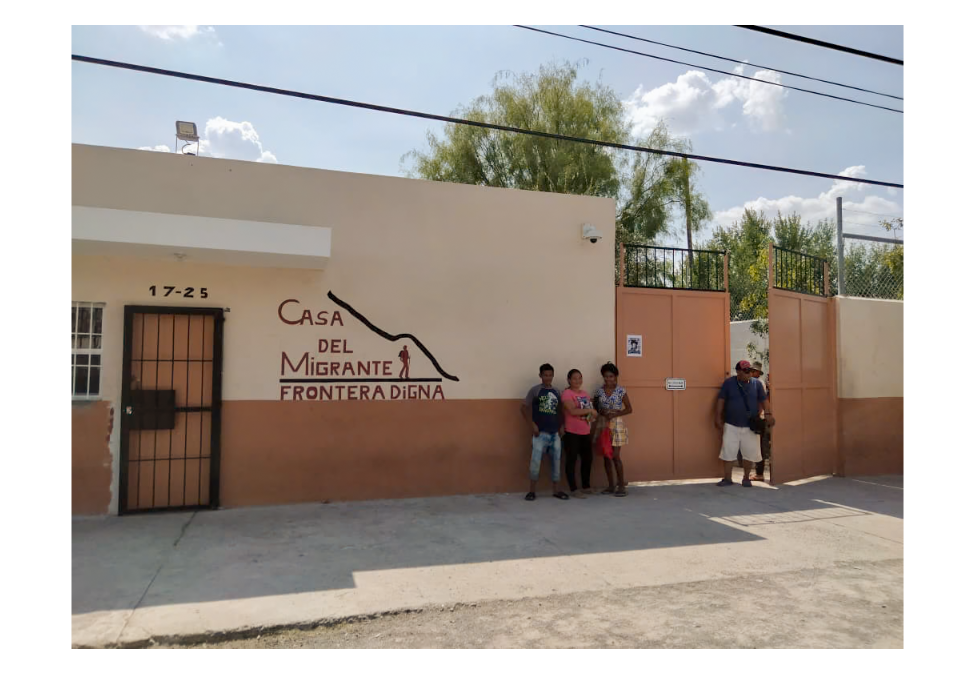
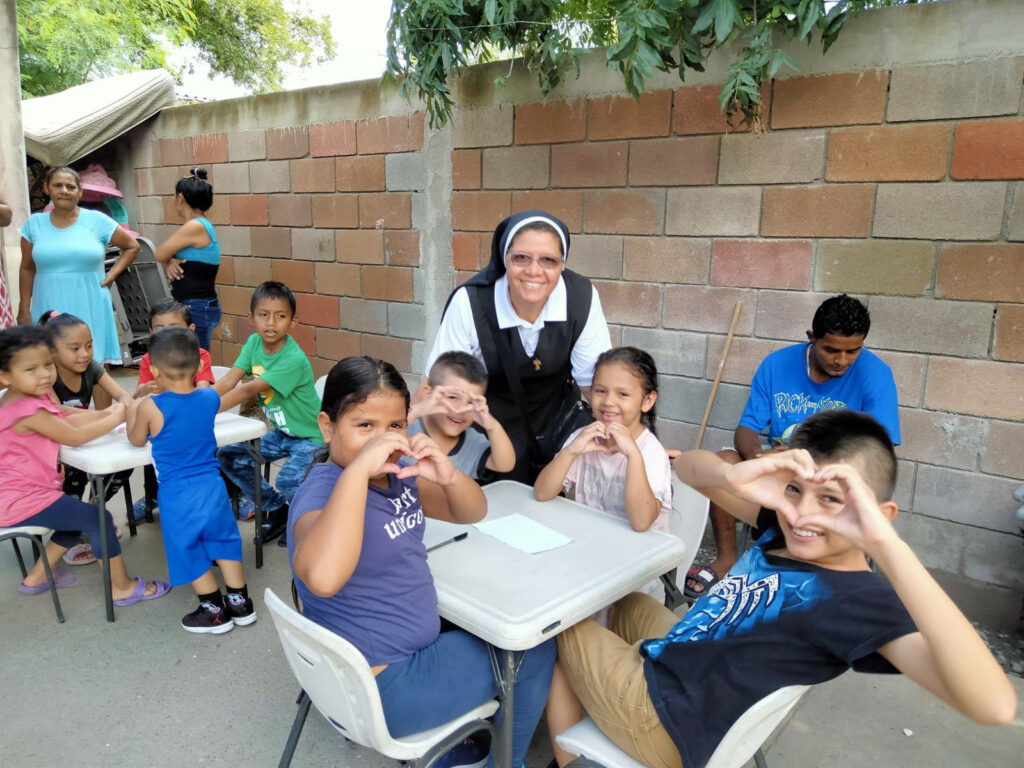
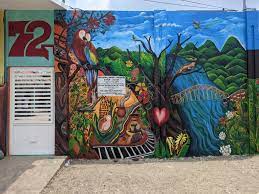
“The issue of migrating without information is as if you were walking down the street blindfolded because you don’t know where to go and what to do.”
Another common thread among the Network’s shelters is the importance placed on access to information: “The issue of migrating without information is as if you were walking down the street blindfolded because you don’t know where to go and what to do,” says Alejandra Conde. Yet many people start their journey without knowing about regularization processes and available protection mechanisms. When they arrive at one of the shelters, they are advised of the options they have and can make an informed choice about what to do next.
However, while these places are essential to ensure the human dignity of people on the move, they constantly face obstacles. First of all, the very nature of migrants’ shelters make them vulnerable to harassment and attacks from both State and non-State actors. In Mexico, not only migrants but also the people accompanying them through visa regularization processes are regularly threatened by the authorities. Then, with migration flows that keep on increasing, shelters are frequently operating at full capacity. This adds up to a severe lack of funding, as many shelters rely on donations: “It would be great to have financial help for unforeseen events, as well as for basic medication and other relief items,” says Sister Isabel.
Despite the hardships, the Franciscan Network for Migrants (FNM) remains hopeful and committed to protecting the dignity of people on the move: “It can be frustrating to have to deal with these abuses against migrants every day,” says Alejandra. “But at the same time, it is very satisfying to see people leaving with their suitcases, with their jackets, with a card and their status regularized, and to see those happy faces when they leave.”

